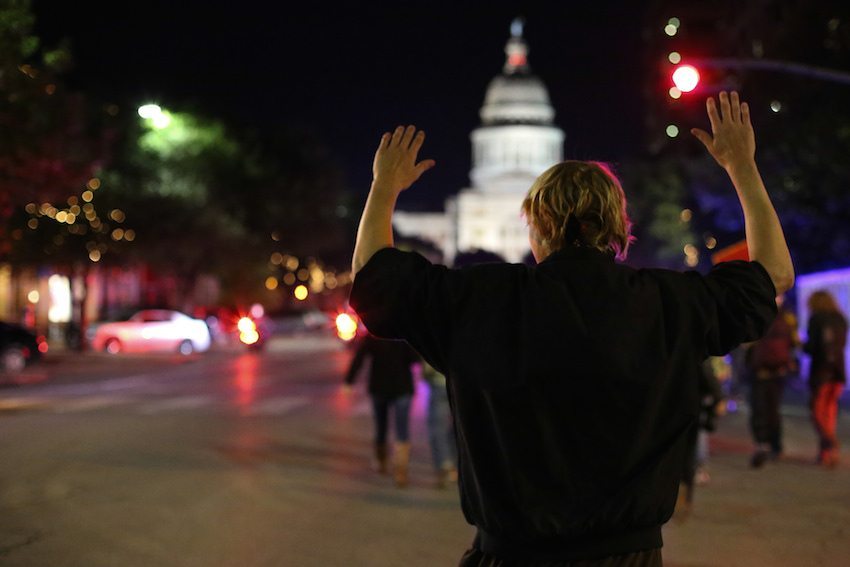
In recent weeks, the peace on the University of Missouri campus has broken. Protestors asking for racial equality have been calling for President Tim Wolfe‘s resignation due to a series of racially insensitive incidents.
As these incidents occurred, the school’s administration accomplished nothing of value to stop similar racism in the future, or even to punish those responsible. The African-American community on campus claims that they have not received the same treatment as the white students. Finally, on Monday, November 9, Wolfe stepped down, giving in to the pressure put on him by a large movement of Missouri students and staff.
Missouri students went to great lengths to achieve their goal of Wolfe’s resignation. The leader of the movement, undergraduate student Jonathan Butler, even began a hunger strike, vowing not to eat until Wolfe met his demands. Finally, Wolfe was forced to step down when the Missouri football team went on a boycott. With the full support of their coaches, they refused to practice or play until the removal of Wolfe occurred.
No one can question the validity of the cause these reformers pursue. Racial equality must always be pursued until everyone is treated with the respect due to them. However, I question whether Missouri riots really accomplished all that much. One man, who expressed sorrow for his sluggish response and willingness to improve, suffered for his inactivity and lost his job. Is that really a landmark victory for the cause of equality?
Students involved in the protests asked for the school to make changes in order to prevent such discriminatory acts. Unfortunately, the main focus of the public has been the resignation of Wolfe. The issue has not been resolved. There is more work yet to be done in Missouri. — Andrew Moore
The real culprits, those who expressed hateful speech or actions to the African-American community on campus, have faded into the background of this controversy. Those small-minded people are the ones who should be penalized, not the school’s president.
The true way for the University of Missouri to move forward as a community into an era of greater racial sensitivity is through more powerful legislation against racist acts, such as those on campus. In one case, a student went so far as to mark a swastika. Students involved in the protests asked for the school to make changes in order to prevent such discriminatory acts. Unfortunately, the main focus of the public has been the resignation of Wolfe. The issue has not been resolved. There is more work yet to be done in Missouri.
President Wolfe summarized the issue well in his statement to the press regarding his resignation and the events surrounding it.
“This is not– I repeat, not– the way change should come about.” Wolfe said. “Change comes from listening, learning, caring, and conversation. Use my resignation to heal and start talking again.”

Very little listening, learning, caring, or conversation happened in the process of change at Missouri University. In pursuit of a positive cause, these key steps in the process of effective change have been ignored. Levelheadedness will be required as schools move forward to eliminate racial disturbances on each campus. Missouri isn’t the first university to face this predicament, and surely won’t be the last. In future conflicts of the same kind, knee-jerk reactions such as firing of high level officials should be avoided in exchange for more sensible pursuit of change.
We can learn from the example that University of Missouri provides us. By all means, pursue racial equality and any other such worthy cause with zeal and fervor. But as reformers attempt to make the world a better place, it is important that they strategically and accurately move forward. Injustice will only continue unchecked if careful precision is not used as blame is placed. As is often the case, the use of cautious reasoning will dispel disputes of many kinds, resulting in effective cultural transformation.
Information for this article was found at USA Today, Washington Post, and ABC News.
This author can be reached via Twitter: @Andrew_Mooooore and via email: Andrew Moore.




